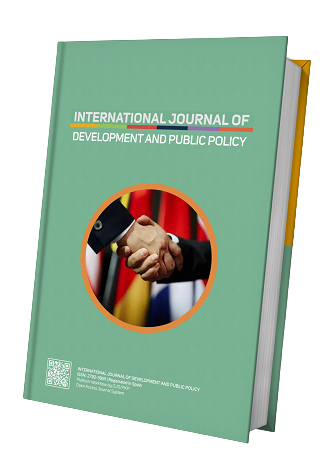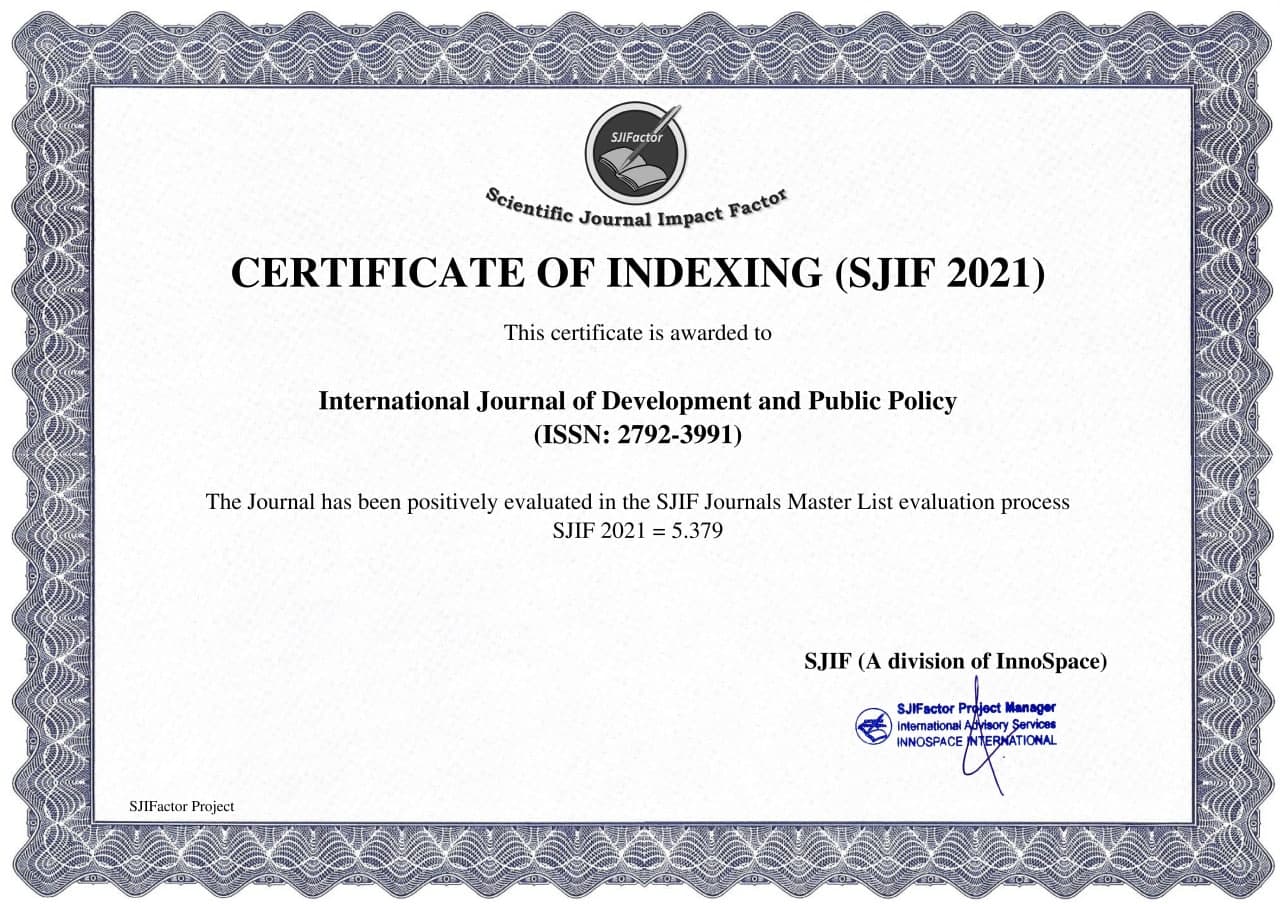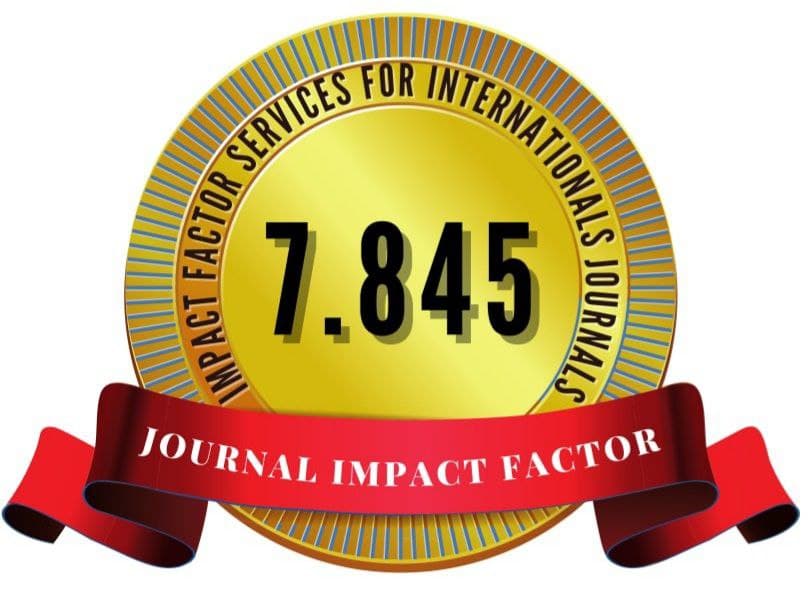Security Administration and Good Governance in Nigeria's Fourth Republic: An Empirical Analysis of Democratic Stability and Citizen Trust
Keywords:
Security challenges, good governance, democratic consolidation, Nigeria, citizen trust, governance reformAbstract
This study examines the impact of security challenges on good governance and democratic consolidation in Nigeria's Fourth Republic. The country has faced persistent security crises, including insurgencies, ethnic violence, and internal conflicts, undermining governance and the consolidation of democracy. The primary aim of the study is to assess how these security challenges contribute to the erosion of governance quality and weaken public trust in democratic institutions. The study adopted a qualitative methodology, drawing on secondary sources such as textbooks, journal publications, and government reports, and employing content analysis to interpret the data. The theoretical framework combined good governance theory and social trust theory, highlighting the essential relationship between security, governance, and citizen trust. the study found that security challenges in Nigeria, especially insurgencies and ethnic violence, have significantly impacted governance by diverting resources from essential public services to security concerns. Furthermore, poor governance practices, such as corruption and lack of accountability, have compounded security issues, eroding public trust in government institutions. This loss of trust has led to political apathy, further hindering democratic participation. The study concludes that the persistent security issues in Nigeria’s Fourth Republic pose a significant threat to democratic consolidation. For democracy to thrive, the government must effectively address security challenges, ensure good governance, and restore public trust. Recommendations include strengthening security institutions by improving training and resource allocation, promoting good governance practices to combat corruption and inefficiency, and fostering citizen engagement and trust through transparent and inclusive policies. These measures will not only address the current security crises but also create a stable foundation for Nigeria’s democratic consolidation.
References
K. Q. Abayomi, “Public trust and state management of the COVID-19 pandemic in Nigeria,” Frontiers in Political Science, vol. 6, 2024. [Online]. Available: https://doi.org/10.3389/fpos.2024.1334827
S. A. Abdullahi and Y. A. Manu, “Democracy leadership and good governance in Nigeria’s Fourth Republic,” World Academy of Science, Engineering and Technology, International Journal of Humanities and Social Sciences, vol. 4, 2017. [Online]. Available: https://consensus.app/papers/democracy-leadership-and-good-governance-in-nigerias-manu/d06141b8a6055bb393049587ffdc934d
T. O. Adefisoye and O. O. Ariyo, “Military deployment in internal security operations and civil-military relations in a democracy: The Nigerian experience,” European Journal of Political Science Studies, 2019. [Online]. Available: https://doi.org/10.46827/ejpss.v0i0.538
T. K. Adekunle, B. Phd, and H. Nwaechefu, “Corruption and bias among judges in Nigeria as recorded in 2018 and 2019: A dash of hope of the common man,” Journal of Law Policy and Globalization, 2019. [Online]. Available: https://doi.org/10.7176/jlpg/82-02
A. B. Adeosun, “Democracy and democratic consolidation in Nigerian Fourth Republic: Issues and challenges,” IOSR Journal of Humanities and Social Science, vol. 19, no. 1, pp. 5–10, 2014.
D. E. Agbiboa, “The ongoing campaign of terror in Nigeria: Boko Haram versus the state,” Stability: International Journal of Security and Development, vol. 2, no. 3, p. 52, 2013. [Online]. Available: https://doi.org/10.5334/sta.cl
O. M. Akinlabi, “Police-citizen relations in Nigeria,” in Palgrave’s Critical Policing Studies, Springer International Publishing, 2022. [Online]. Available: https://doi.org/10.1007/978-3-030-92919-0
E. O. Alemika, “Corruption, governance performance and political trust in Nigeria,” African Journal of Political Science, 2004.
M. B. Aleyomi, “Nigeria’s image crisis: Drivers, efforts, and prospects,” African Identities, vol. 18, pp. 217–232, 2020.
“Applicable laws in engaging non-state actors in counter-insurgency operations: With particular reference to Nigeria,” SSRN Electronic Journal, 2014. [Online]. Available: https://doi.org/10.2139/ssrn.2546906
H. Born, Reviving Security Sector Reform in Transition States: Lessons Learned from Indonesia and Nigeria. Springer, 2013.
A. Dambazau, “Nigeria’s security challenges and the crisis of political development in North Africa,” Nigeria’s Journal of Political Science and Development Studies, vol. 1, no. 1, pp. 45–60, 2014.
V. Das, “Judicial corruption: The case of Nigeria,” Journal of Financial Crime, vol. 25, no. 4, p. 926, 2018. [Online]. Available: https://doi.org/10.1108/jfc-02-2017-0011
A. Dawson and I. L. Krakoff, “Political trust and democracy: The critical citizens thesis re-examined,” Democratization, vol. 31, pp. 90–112, 2023.
A. U. Egye, “Democracy and national security challenges in Nigeria: 1999–2017,” International Journal of Scientific and Education Research, vol. 2, no. 6, pp. 134–140, 2019.
A. Ejiogu, C. Ejiogu, and A. Ambituuni, “The dark side of transparency: Does the Nigeria Extractive Industries Transparency Initiative help or hinder accountability and corruption control?” The British Accounting Review, vol. 51, no. 5, p. 100811, 2018. [Online]. Available: https://doi.org/10.1016/j.bar.2018.10.004
C. Enyiazu, O. Madueke, and C. C. Mbaegbu, “Civil military relations in a post-colonial state: An interrogation of Nigeria’s military internal operations,” Open Journal of Political Science, vol. 12, no. 2, p. 162, 2022. [Online]. Available: https://doi.org/10.4236/ojps.2022.122010
O. Fadare, C. Srinivasan, and G. Zanello, “Livestock diversification mitigates the impact of farmer-herder conflicts on animal-source foods consumption in Nigeria,” Food Policy, vol. 122, p. 102586, 2023.
D. P. Fisayo, N. D. Nte, A. A. Adejoke, and O. R. Ayoola, “Elite capture syndrome and anti-corruption control in Nigeria: The Economic and Financial Crimes Commission and the Independent Corrupt Practices Commission in perspective,” International Journal of Business Humanities Education and Social Sciences (IJBHES), vol. 5, no. 2, p. 144, 2023.
F. Fukuyama, Trust: The Social Virtues and the Creation of Prosperity. Free Press, 1995.
B. Igbinovia, S. S. Akpan, F. O. Mbagwu, U. I. Mohammad, and D. Umoru, “Asymmetric responses of manufacturing sector to changes in exchange rates and bank credits: Developing country evidence,” BRICS Journal of Economics, vol. 6, no. 2, p. 139, 2025.
Y. D. Izom, M. H. Joel, and L. Noma, “Security challenges and the survival of democracy in Nigeria: An assessment of Niger East Senatorial District, Niger State,” International Journal of Research and Innovation in Social Science, p. 2052, 2024.
C. Ji and J. Jiang, “The primacy of performance for regime support: Evidence from a global dataset,” Public Choice: Public Goods eJournal, 2020.
W. R. F. King, Good Governance and Development: Globalization and the State. University Press, 1995.
E. V. Kubanov, “Theoretical approaches to the conceptual-categorical apparatus of cybersecurity in the system of public administration,” Public Administration Aspects, 2018.
Y. Laiatu, A. M. Ibrahim, K. O. Fatai, and G. O. Fadare, “Issues and challenges of people-driven anti-corruption campaign: An analysis of Independent Corrupt Practices and Other Related Offences Commission in Nigeria,” Zenodo (CERN European Organization for Nuclear Research), 2023. [Online]. Available: https://doi.org/10.5281/zenodo.7827452
T. Lawal and S. Oriola, “Nigerian state, leadership deficiency, and the challenges of good governance in the Fourth Republic,” African Journal of Politics and Administrative Studies, vol. 16, no. 1, p. 21, 2023.
S. B. Lugard, “Judicial corruption as a self-inflicted impediment to the independence of the judiciary in Nigeria,” KAS African Law Study Library, vol. 4, no. 3, p. 310, 2017.
G. C. Malasowe, “State and security crises in Nigeria’s Fourth Republic (1999–2015): A paradox of democracy,” Research on Humanities and Social Sciences, 2016.
M. Mauk, “Quality of democracy makes a difference, but not for everyone: How political interest, education, and conceptions of democracy condition the relationship between democratic quality and political trust,” Frontiers in Political Science, 2021.
J. Momodu, “The Nigerian army and internal security operations in the Fourth Republic,” Internal Security Management in Nigeria, 2019.
I. B. Namo, L. Agwadu, and W. T. Amakoromo, “Governance, corruption, and underdevelopment in Nigeria’s Fourth Republic,” African Journal of Humanities and Contemporary Education Research, 2024.
A. Nwozor, J. S. Olanrewaju, S. Oshewolo, and M. Ake, “Is Nigeria really fighting to win the anti-corruption war?” Journal of Financial Crime, vol. 27, no. 2, p. 601, 2020.
U. S. Ogbo and S. A. Avidime, “Assessing democratic governance in the Nigerian Fourth Republic, 1999–2014,” European Scientific Journal, vol. 12, no. 29, pp. 142–142, 2016.
C. O. Okafor, U. C. Chienweze, H. S. Abu, and N. R. Umoh, “Democracy and perceived public confidence in the judiciary: Roles of socio-economy and gender,” African Research Review, vol. 14, no. 1, p. 155, 2020.
S. O. Olisah, “Cognitive restructuring: A panacea for good governance and national security in Nigeria,” International Journal of Security and Governance, vol. 6, no. 3, pp. 25–40, 2020.
O. A. Oluyemi, “The military dimension of Niger Delta crisis and its implications on Nigeria national security,” SAGE Open, vol. 10, no. 2, 2020. [Online]. Available: https://doi.org/10.1177/2158244020922895
M. Omilusi, “Justice for the rich, judgment for the poor: ‘Elite immunity’, rampant impunity and the administration of criminal justice in Nigeria,” Revista Brasileira de Estudos Africanos, vol. 4, no. 7, 2019.
S. M. Omodia and M. Aliu, “Governance and threats to national security in emerging democracies: A focus on the Nigerian Fourth Republic,” Research on Humanities and Social Sciences, vol. 3, no. 36, pp. 36–42, 2013.
E. O. Oni, O. T. Faluyi, L. O. Asumu, and A. A. Olutola, “Security challenges and election administration in Nigeria’s Fourth Republic,” Frontiers in Political Science, vol. 7, 2025. [Online]. Available: https://doi.org/10.3389/fpos.2025.1458303
U. R. Onyebuchi, “Public accountability in Nigeria’s Fourth Republic: An overview,” IOSR Journal of Humanities and Social Science, vol. 2, no. 8, pp. 8–12, 2012.
A. A. Oyekanmi and M. O. Rosenje, “Challenges and prospects of national security, legitimacy, and democratic sustenance in Nigeria’s Fourth Republic,” Journal of Government and Political Issues, vol. 2, no. 2, 2022.
C. Solanes, “Complete issue: Journal of Conflictology volume 5, issue 1,” Journal of Conflictology, vol. 5, no. 1, 2014.
D. F. A. Tiwa, “Institutional distrust trap: An analysis of the effect of public distrust in the Nigeria Police Force,” Policing & Society, vol. 34, no. 8, p. 846, 2024.
B. Ugochukwu, “The pathology of judicialization: Politics, corruption and the courts in Nigeria,” The Law and Development Review, vol. 4, no. 3, 2011.
U. Ukiwo, “Democracy consolidation in Nigeria: Ethnic conflicts, security challenges, and governance,” African Political Science Review, vol. 13, no. 2, pp. 112–123, 2003.
M. Yousaf, F. Ihsan, and A. Ellahi, “Exploring the impact of good governance on citizens’ trust in Pakistan,” Government Information Quarterly, vol. 33, pp. 200–209, 2016.
F. Zuo, J. Rhee, M. Park, and G. Qian, “Designing a security system administration course for cybersecurity with a companion project,” ArXiv, 2023.






